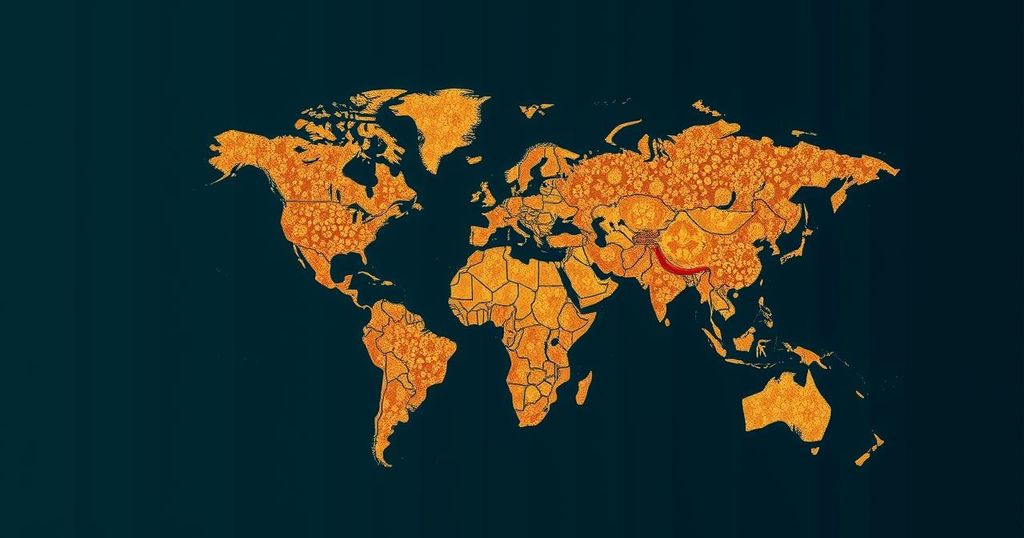The IMF is advised to sell 4% of its gold reserves, generating $9.52 billion for debt relief in low-income countries affected by climate change. This sale could replenish its limited CCRT fund, which currently supports only 30 countries. With gold prices at over $2,600 per ounce, this strategy highlights the urgent need for climate financing as nations face increasing debt repayments.
The International Monetary Fund (IMF) is being urged to sell approximately 4% of its gold reserves, equivalent to about 90.5 million ounces, to provide debt relief for low-income countries heavily affected by climate-related disasters. A study from the Boston University Global Development Centre highlights that although the IMF has the Catastrophe Containment Relief Trust (CCRT), it currently assists only 30 nations and is hindered by severe funding limitations. The researchers posit that selling a fraction of gold, amidst high current prices, could generate $9.52 billion, offering substantial relief to 86 countries in need while replenishing the CCRT. The urgency for climate financing has become a focal topic at the COP29 summit, where the struggles of low-income nations, from the Caribbean to Africa, are being recognized. These countries have increasingly relied on the IMF for assistance, especially in response to crises such as the COVID-19 pandemic, resulting in rising repayments to the institution. The CCRT, designed to support vulnerable nations, has only $103 million in resources and is restricted in its eligibility criteria which fails to accommodate many of those impacted by climate vulnerabilities. The proposed sale of IMF gold could significantly alleviate the debt burden faced by numerous countries. With current gold prices exceeding $2,600 per ounce, the sale of this small percentage could yield the necessary funds to not only aid in debt relief but also enhance the CCRT, which presently operates without conditionality — a crucial aspect for recipient nations. The financing gap for these vulnerable economies continues to widen, prompting calls for immediate action. Historically, the IMF has rarely sold gold, with the last instance occurring in 2009/10 to bolster its lending capabilities. As documented, nations like Madagascar and Mozambique are projected to face increasing repayment challenges in the upcoming years, underscoring the need for alternative funding sources. Replenishing the CCRT is seen as a pressing necessity that requires the endorsement of a significant majority of the IMF’s executive board, and member states would need to commit to directing their shares of proceeds to the CCRT, which is characterized by its lack of additional conditions for borrowing nations. In conclusion, the IMF’s potential gold sales could provide a timely solution for financially strained, climate-vulnerable countries. Enhancing support mechanisms like the CCRT is paramount to address the escalating demands for climate financing and debt management, thus emphasizing the IMF’s crucial role in the global financial architecture.
The proposal for the IMF to sell a portion of its gold reserves emerges amid growing concerns over climate financing for low-income countries that are increasingly facing natural disasters and financial hardships. The CCRT is a specific fund established to assist such nations but has been criticized for its limited reach and funding. With rising global gold prices, this strategy seeks to utilize existing assets to generate significant financial relief for countries that struggle to meet debt obligations while simultaneously prioritizing climate recovery efforts.
The International Monetary Fund’s decision to consider the sale of a small percentage of its gold reserves represents a strategic move to enhance its support for low-income countries suffering from the effects of climate change. By leveraging its gold reserves, the IMF can effectively provide essential debt relief, replenish its disaster relief funds, and address the pressing financial challenges faced by vulnerable nations worldwide, thus reinforcing its commitment to global financial stability.
Original Source: www.kitco.com






